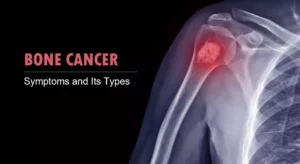Bile Duct Cancer (Cholangiocarcinoma)
Bile duct cancer is a rare disease, accounting for 10 to 20 percent of all liver cancers. It may cause symptoms such as jaundice, itching, abdominal pain and weight loss. Light colored stool or dark urine may also occur. The vast majority of these cancers are known as cholangiocarcinomas.
This condition, also known as bile duct cancer, is an uncommon form of cancer that occurs mostly in people older than age 50, though it can occur at any age.
See your doctor if you have persistent fatigue, abdominal pain, jaundice, or other signs and symptoms that bother you
FAQs related to Bile Duct Cancer
Q. Is Cholangiocarcinoma a Liver Cancer?
Ans. Cholangiocarcinoma is a cancer that starts in the bile ducts — the tubes that connect the liver and the gallbladder to the small intestine.
Q. What is the Survival Rate of Bile Duct Cancer?
Ans. The 5-year survival rate for people with early-stage extrahepatic bile duct cancer is 30%. If the cancer has spread to the regional lymph nodes, the 5-year survival rate is 24%. If the cancer has spread to a distant part of the body, the 5-year survival rate is 2%.
Q. Can Cholangiocarcinoma be Cured?
Ans. Treatment for bile duct cancer usually aims to control the symptoms for as long as possible. But if it’s found early enough, there’s sometimes a chance it could be cured.
Q. What is the Life Expectancy With Cholangiocarcinoma?
Ans. They generally have a very poor prognosis. Many studies report a dismal median survival of approximately 6 months. A case reported in literature reported a patient diagnosed with cholangiocarcinoma who has remarkably exceeded life expectancy to greater than 4 years with a fourth line agent Sorafenib.
Q. What are Signs and Symptoms of Cholangiocarcinoma ?
Ans. Signs and Symptoms of Cholangiocarcinoma Include:
- Yellowing of your skin and the whites of your eyes (jaundice)
- Intensely itchy skin
- White-colored stools
- Fatigue
- Abdominal pain
- Unintended weight loss
Q. What Risk Factors Associated ?
Ans. Factors that may increase your risk of cholangiocarcinoma include:
1. Primary sclerosing cholangitis.
2. Chronic liver disease.
3. Bile duct problems present at birth.
4. A liver parasite.
5. Older age.
6. Smoking.
Q. What Prevention Can be Taken?
Ans. There’s no way to prevent cholangiocarcinoma. But you may reduce your risk of the disease if you:
- Stop smoking
- Reduce your risk of liver disease
Q. How to Diagnose Cholangiocarcinoma?
Ans. A thorough and accurate bile duct cancer diagnosis is the first step in designing a treatment plan.
Laboratory tests used for diagnosing include:
- Liver function tests (LFTs)
- Blood tests for tumor markers: High blood levels of the carcinoembryonic antigen (CEA) and CA 19-9 tumor markers may be found in people with this cancer.
Endoscopic or laparoscopic ultrasound.
A variety of imaging tests may be used to diagnose bile duct cancer.
Q. How is Bile Duct Cancer Treated?
Ans. treatment offers a variety of techniques in the areas of surgery, radiation and gastroenterology procedures, as well as novel investigative approaches.
Surgery
Some gastrointestinal (GI) procedures for this cancer include:
- ERCP (endoscopic retrograde cholangiopancreatography) allows a view of the bile ducts in order to remove samples for biopsy, relieve an obstruction of the bile duct or place a stent into a narrowed duct to keep it open.
- Stent placements
- Balloon dilation for obstruction
- Photodynamic therapy (PDT) is an innovative treatment that uses light-activated drugs (or photosensitizing agents) and a light source to kill cancer cells.
Radiation therapy
Targeted therapy
Chemotherapy
Immunotherapy
Also Read:
What is Colorectal Cancer and Related FAQs
Vulvar Cancer: Diagnosis, Staging, And Treatment Options for this Rare Malignancy




